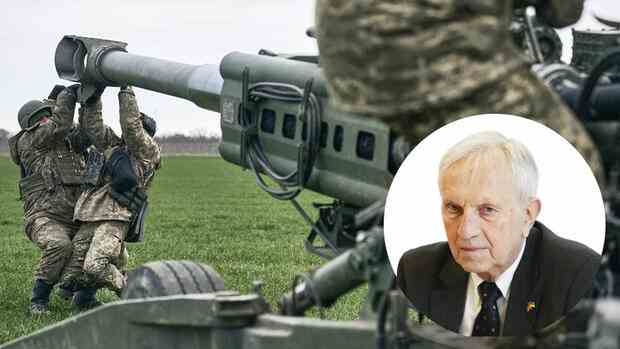Now is the anniversary of the beginning of an aggression that many did not want to see coming, even though Russia has been at war with Ukraine since 2014. His character is misunderstood when the SPD faction leader Rolf Mützenich laments about “what people do to each other”. Mutual? Russian soldiers wouldn’t be killed if they didn’t stay where they shouldn’t be.
This is not a showdown between two “war opponents”, but the Russian offensive to subjugate a free neighboring country – criminal both in terms of intention and goal (ius ad bellum) and in terms of methods that violate international war law (ius in bello).
Putin’s revisionist, imperialist, colonialist goals are overshadowed by an arbitrary interpretation of history that denies Ukraine’s right to state existence.
The Russian goals are played down when, devoid of all empathy, it is stated that Ukraine will not be able to do without ceding territory. “Given Territories” are regions and locations of millions of Ukrainians who, under Russian rule, will experience what has already been revealed in occupied territories.
These include murder, rape, torture, enforced disappearance of local politicians, looting, systematic removal of cultural property, destruction of homes, schools, kindergartens, hospitals and churches, mining of towns and fields – and the deportation to Russia of millions of Ukrainians, including tens of thousands of children Adoption by Russians.
Putin wants to reverse the trend since 1991
The fact that Putin would not stop at Ukraine after a victory or a dictated peace is shown not least by his letters to NATO and the US administration in December 2021. He wants to reverse the trend since 1991 and implicitly revive the Brezhnev Doctrine of limited sovereignty of satellite states.
Strategically, Russia has long since lost, but it can still bring much death and destruction to Ukraine.
A fundamental concern for Europe and the world is the massive violation of the principles of the European security order agreed in the Helsinki Final Act: sovereign equality of European states, peaceful settlement of disputes, territorial integrity, inviolability of borders. Catastrophic, that would make school.
But the Russian dictator miscalculated: in terms of Ukrainian resistance, Western support, the unity of the EU and NATO, the sanctions – and quite dramatically in terms of the capabilities of his own armed forces. Strategically, Russia has long since lost, but it can still bring much death and destruction to Ukraine.
Olaf Scholz should have forged the “Panzer Coalition” six months ago
Everyone wants the war to end, but if Russia stops fighting, the war will be over. If Ukraine does, it will no longer exist. Negotiations, which are called for by many voices, only make sense if Putin gives up his constantly affirmed war goals: “de-Ukrainization, denazification, demilitarization”. He won’t do that until he’s forced to see they’re out of reach.
If Russia stops fighting, the war will be over. If Ukraine does, it will no longer exist.
That is why Ukraine must be empowered even more to defend and liberate, i.e. recapture, stolen territory. To do this, it needs a network of armored combat vehicles, artillery (also long-range systems against supply lines and command centers), air defense – and everything, including ammunition, faster and in larger numbers in order to assert itself against the Russian strategy of “mass instead of class”. The long-standing requirement for the order of 300 main battle tanks and 500 infantry fighting vehicles is realistic.
>> Also read: China, Turkey and UAE are turning their backs on Russia’s banks
The German decision to form and lead a “tank coalition” (including preparation, repair, ammunition procurement, training) should have been made half a year ago. At the same time, Chancellor Olaf Scholz, who boasted at the Munich Security Conference of having avoided “rush shots”, need not have given up his maxim of avoiding entering the war and going it alone.
It would have been clear earlier that some Allies were hiding behind Germany’s hesitancy, and Defense Minister Boris Pistorius, who is putting considerable energy into making up for lost time, would have fewer problems.
No “compromise” is conceivable between the intention to destroy and the will to survive.
What happens next in the theater of war is largely a function of Western determination, nerve-racking in the face of Putin’s threats — including nuclear ones — and armed support, which often comes late. Otherwise, Ukraine could have increased the momentum of the counterattacks around Kharkiv and Cherson in the fall and would have had fewer casualties.
One thing is certain: no “compromise” is conceivable between the intention to destroy and the will to survive. In the short term, the goal must be to restore Ukraine’s territorial integrity, and in the long term to achieve a lasting peace in the Euro-Atlantic area that includes Ukraine and conforms to international law.
The author:
Klaus Wittmann is a retired brigadier general and teaches contemporary history at the University of Potsdam.
More: “Putin’s end will come sooner rather than later”
